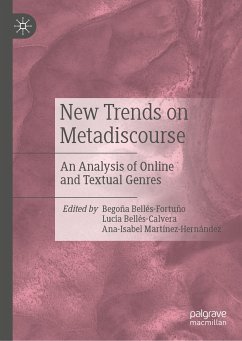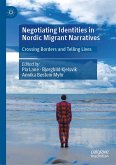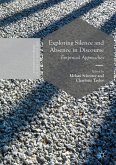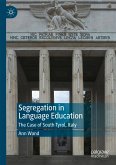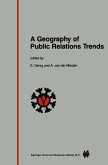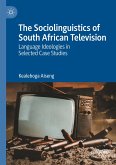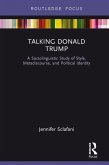-Francisco Alonso Almeida, Professor in Modern Languages, Translation and Interpretation Department, Universidad de Las Palmas de Gran Canaria, Spain
"New Trends on Metadiscourse combines research methods and integrates hot issues such as identity, learning progression, cross-disciplinary and generic variation and persuasion strategies under a multilingual and multicultural gaze."
-Carmen Sancho Guinda, senior lecturer in Applied Linguistics to Science and Technology Department, Universidad Politécnica de Madrid, Spain
This edited book gives an updated overview of methods of analysis of academic and non-academic genres in a digital era. The advent of digital and social media has deeply transformed academic and non-academic communication practices in the past two decades. The linguistic landscape is now a multilayered one; multicultural issues and cross-linguistic aspects are addressed in a way to understand how linguistically and culturally diverse identities try to find pathways. The book contains nine chapters divided into two main sections corresponding to academic and non-academic texts where written, spoken and digital genres are examined from different perspectives. This book provides an up-to-date and innovative view of metadiscourse research and develops new research methodologies, drawing on visual research methods and combinations of qualitative and quantitative approaches from fields including Discourse Analysis, Corpus Linguistics, and Genre Analysis.
¿Begoña Bellés-Fortuño is a senior lecturerin the Department of English Studies at Universitat Jaume I, Spain.
Lucía Bellés-Calvera is a junior lecturer in the Department of English and German Philology at Universitat de València, Spain.
Ana-Isabel Martínez-Hernández is a part-time adjunct lecturer in the Department of Translation and Communication Studies at Universitat Jaume I, Spain.
Dieser Download kann aus rechtlichen Gründen nur mit Rechnungsadresse in A, B, BG, CY, CZ, D, DK, EW, E, FIN, F, GR, HR, H, IRL, I, LT, L, LR, M, NL, PL, P, R, S, SLO, SK ausgeliefert werden.

